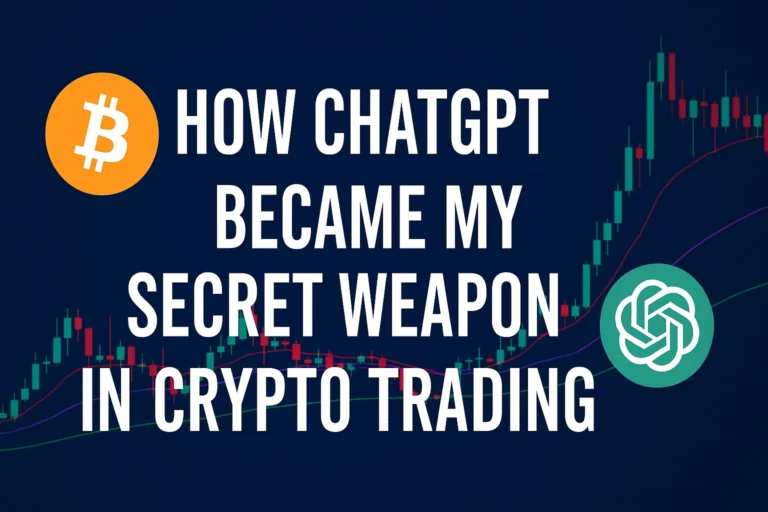What Is Cryptocurrency? Why People Are Searching In 2025

What Is Cryptocurrency
Hey… Today we are going to know about cryptocurrency.
It is a revolutionary form of digital money that is reshaping the way people think about finance, technology, and trust. While many people have heard of Bitcoin, few truly understand how cryptocurrency works and why it matters.
This section will break it down step by step, covering key concepts in a clear and beginner-friendly way.
1. Definition: What Is Cryptocurrency
Cryptocurrency is a type of digital or virtual currency that uses cryptography to secure transactions. Unlike physical currencies such as the dollar, rupee, or euro, cryptocurrencies exist only in digital form and are not controlled by any central authority, such as a government or central bank.
In simple terms, cryptocurrency allows people to send and receive money over the internet without needing a bank or financial institution to process the transaction.
2. The Role of Blockchain Technology
At the heart of every cryptocurrency is a technology called blockchain. This is a distributed digital ledger that records every transaction made with the currency.
Think of it as a public record book that is maintained by a network of computers, not by one single authority. Each transaction is grouped into a block, and once that block is full, it is added to a chain of previous blocks, creating a permanent and tamper-proof history of all activity.
Blockchain ensures that cryptocurrency is-
- Decentralized
- Transparent
- Secure
3. How Cryptocurrency Works
Cryptocurrency transactions happen through a peer to peer network. Here’s how it generally works:
- Wallets: Users store their cryptocurrency in digital wallets. These wallets have private keys that give access to the funds.
- Sending Money: When someone sends cryptocurrency, they create a transaction and sign it with their private key.
- Verification: That transaction is then broadcast to the network, where other computers verify it using consensus algorithms like Proof of Work or Proof of Stake.
- Recording: Once verified, the transaction is added to the blockchain and becomes part of the permanent record.
All of this happens without any middleman, bank, or authority.
4. Popular Types of Cryptocurrency
There are thousands of cryptocurrencies available, but here are some of the most important and widely used:
- Bitcoin (BTC): The first and most valuable cryptocurrency, created in 2009 by a person or group using the name Satoshi Nakamoto.
- Ethereum (ETH): A platform that supports smart contracts and decentralized applications (dApps), not just payments.
- Tether (USDT): A stablecoin that is tied to the value of the US dollar and is often used for trading.
- Solana (SOL), Cardano (ADA), and others: These are newer projects that offer unique features like faster transactions, lower fees, or greater energy efficiency.
5. Why Cryptocurrency Matters
Cryptocurrency is not just an investment tool. It offers several important benefits-
- Decentralization: No single entity controls the money.
- Financial Freedom: Anyone with internet access can participate, including people without access to traditional banks.
- Low Fees and Fast Transfers: Especially useful for sending money across borders.
- Innovation: Enables new technology like smart contracts, decentralized finance (DeFi), and NFTs.
6. Risks and Challenges
Cryptocurrency is exciting, but it also comes with risks-
- Volatility: Prices can rise or fall quickly.
- Security: If someone loses their wallet password or gets hacked, their funds can be lost permanently.
- Scams and Fraud: The industry has attracted fake projects and rug pulls.
- Regulatory Uncertainty: Different countries have different laws, and those laws are still evolving.
7. How To Buy and Use Cryptocurrency
Buying and using cryptocurrency is easier than ever-
- Choose an Exchange: Platforms like Coinbase, Binance, or local exchanges in your country allow users to buy with bank cards or transfers.
- Create a Wallet: Store your coins in a secure wallet. Online wallets are easy to use, while hardware wallets offer greater protection.
- Make Transactions: You can send cryptocurrency to friends, pay for services, or invest in crypto-based assets.
It is important to research well and only use trusted platforms.
8. Cryptocurrency vs Traditional Money
| Feature | Cryptocurrency | Traditional Money |
|---|---|---|
| Control | Decentralized | Controlled by central banks |
| Accessibility | Global, anyone with internet | Limited by banks, geography |
| Inflation Risk | Often fixed supply (example- Bitcoin) | Can be printed, inflation risk |
| Transfer Speed | Minutes or seconds | Can take days |
| Privacy | Pseudonymous transactions | Linked to personal identity |
9. Use Cases Beyond Investment
While many see crypto as a way to make money, its uses go far beyond that:
- International Remittances: Faster and cheaper money transfers across borders
- Digital Identity: Protecting online identities using blockchain
- Smart Contracts: Automated agreements in finance, insurance, gaming, etc.
- DeFi (Decentralized Finance): Banking-like services without banks
10. The Future of Cryptocurrency
In the future of cryptocurrency is still young, and its full potential is yet to be realized. As more people learn about what it is and how it works, adoption is likely to grow.
Governments are starting to create regulations. Big companies are building products on blockchain. Even central banks are testing their own digital currencies.
Some people believe crypto will change the financial system completely. Others think it will exist alongside traditional money. Either way, it is clear that cryptocurrency is more than just a trend, it is a global movement that is still unfolding.
Why People Are Searching About Cryptocurrency
Reason 1: Explosive Growth and Rising Prices
You know? The price of Bitcoin and other cryptocurrencies has seen dramatic rises in 2024 and 2025. Bitcoin recently crossed 100,000 dollars, setting a new record. When prices rise this fast, people naturally become curious.
They begin to wonder whether they should invest, whether they are missing out, or whether it is just another bubble.
People are not only searching for “what is cryptocurrency” to understand how it works, but also to find out how to get started with investing. They want to know which platforms to use, how to store their digital coins, and what risks are involved. This growing curiosity often follows the money.
Reason 2: Mainstream Adoption and Big Names Involved
In earlier years, cryptocurrency was seen as a playground for tech enthusiasts and underground traders. That image has changed.
Today, major companies like Tesla, Visa, Mastercard, and PayPal have started working with cryptocurrency.
Financial institutions like BlackRock and Fidelity have launched crypto-based investment products. Even governments are exploring digital currencies and regulations.
This kind of mainstream attention has made people wonder: if the big players are getting involved, should I also pay attention? And so, more and more people begin searching online for terms like “what is cryptocurrency” or “should I invest in crypto now.”
Reason 3: Easy Access Through Mobile Apps and Platforms
A few years ago, buying cryptocurrency was complicated. You had to go through online exchanges that were difficult to use.
Today, it is as simple as downloading a mobile app. Platforms like Coinbase, Binance, and even payment apps like Cash App and Venmo allow users to buy small amounts of Bitcoin and Ethereum instantly.
This increased ease of access has led to a surge in public interest. Many people are searching to understand the basics before they make their first purchase. They want to learn about wallets, security, passwords, and how to protect their assets from scams or theft.
Read: Omar Zaki Crypto
Reason 4: Inflation and Distrust in Traditional Finance
In many parts of the world, people are losing trust in traditional banks and governments to protect their money. Inflation has been rising. In some countries, currencies have lost more than half their value. This economic instability has led people to look for alternatives and cryptocurrency offers one.
People want to understand how digital currencies can act as a store of value. They are asking whether holding Bitcoin or stablecoins is better than keeping their savings in a bank. For them, searching “what is cryptocurrency” is not just curiosity, it is a search for survival.
Reason 5: The Rise of Social Media and Influencers
Another big reason people are searching about cryptocurrency is the influence of social media. Platforms like Twitter, Instagram, and especially YouTube and TikTok are filled with crypto content. Influencers often talk about new coins, investment strategies, or the latest news from the market.
This constant exposure builds awareness. Even if someone is not interested in investing, hearing about cryptocurrency regularly makes them wonder what all the hype is about. Eventually, they start searching to learn more.
Reason 6: New Technologies Like NFTs and Web3
Cryptocurrency is not just about money. It is also the foundation of new digital ecosystems. One example is NFTs unique digital collectibles that can represent anything from art to music to virtual real estate.
Another example is Web3, a new version of the internet where users control their data and online identities.
All of these innovations are based on blockchain and use cryptocurrency in some form. When people hear about NFTs being sold for millions, or about virtual worlds like Decentraland and The Sandbox, they become curious.
They begin to search for the basics, starting with “what is cryptocurrency” so they can understand the foundation behind these trends.
Reason 7: A Feeling of Being Left Behind
Perhaps one of the most emotional reasons for the rise in search interest is the fear of missing out. When people see others making money from crypto, they feel like they are behind. Even if they do not understand how it works, they want to learn enough to join in.
This fear, mixed with curiosity and pressure from peers, leads to a massive number of searches. And while some people eventually invest, many just want to educate themselves and stay informed.
Read: Bitcoin Vs Altcoins
What the Search Trends Tell Us
Data from online search engines shows that search interest for cryptocurrency often follows major events price rallies, new laws, or announcements by celebrities or companies.
When Bitcoin reached all-time highs, searches spiked. When Elon Musk tweeted about Dogecoin, the internet lit up. When the United States approved Bitcoin ETFs, search traffic surged again.
But interestingly, while the price of crypto continues to rise, search volumes are growing at a slower pace than in past years. This suggests that the audience is changing. In the early days, it was mostly small investors who searched.
Today, big institutions and experienced traders are leading the market and they do not need to search as much. Still, everyday people continue to look up basic terms like “what is cryptocurrency” to catch up.
Conclusion
Cryptocurrency is no longer a strange word limited to tech forums. It has become a global topic, touching finance, technology, art, and even politics. As its impact grows, more people will continue searching to understand it.
Whether they are driven by money, curiosity, fear, or a desire to take control of their financial future, one thing is clear cryptocurrency is here to stay. And as long as it continues to evolve, people will keep searching to understand what it is, how it works, and what role it might play in their lives.
In the end, asking “what is cryptocurrency” is more than just a Google search it is a signal that people everywhere are waking up to a new kind of economy. And the more they learn, the more they participate, shaping the future of money one search at a time.
Contents
- 1 What Is Cryptocurrency
- 1.1 1. Definition: What Is Cryptocurrency
- 1.2 2. The Role of Blockchain Technology
- 1.3 3. How Cryptocurrency Works
- 1.4 4. Popular Types of Cryptocurrency
- 1.5 5. Why Cryptocurrency Matters
- 1.6 6. Risks and Challenges
- 1.7 7. How To Buy and Use Cryptocurrency
- 1.8 8. Cryptocurrency vs Traditional Money
- 1.9 9. Use Cases Beyond Investment
- 1.10 10. The Future of Cryptocurrency
- 2 Why People Are Searching About Cryptocurrency
- 2.1 Reason 1: Explosive Growth and Rising Prices
- 2.2 Reason 2: Mainstream Adoption and Big Names Involved
- 2.3 Reason 3: Easy Access Through Mobile Apps and Platforms
- 2.4 Reason 4: Inflation and Distrust in Traditional Finance
- 2.5 Reason 5: The Rise of Social Media and Influencers
- 2.6 Reason 6: New Technologies Like NFTs and Web3
- 2.7 Reason 7: A Feeling of Being Left Behind
- 2.8 What the Search Trends Tell Us
- 2.9 Conclusion






